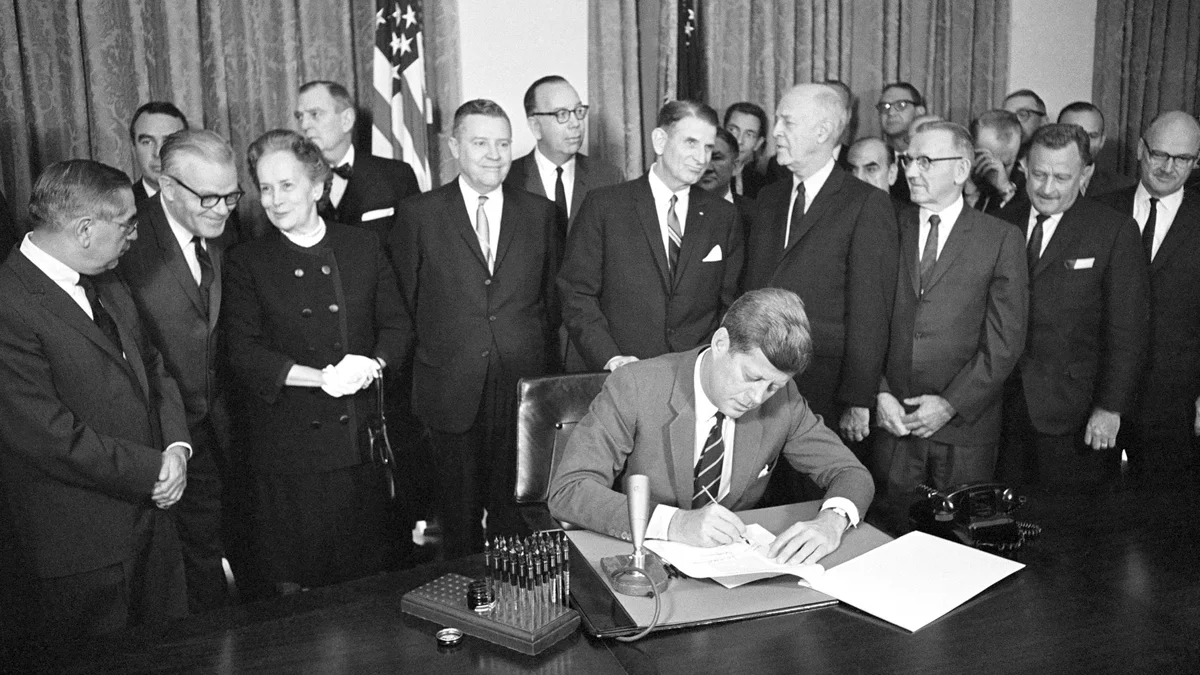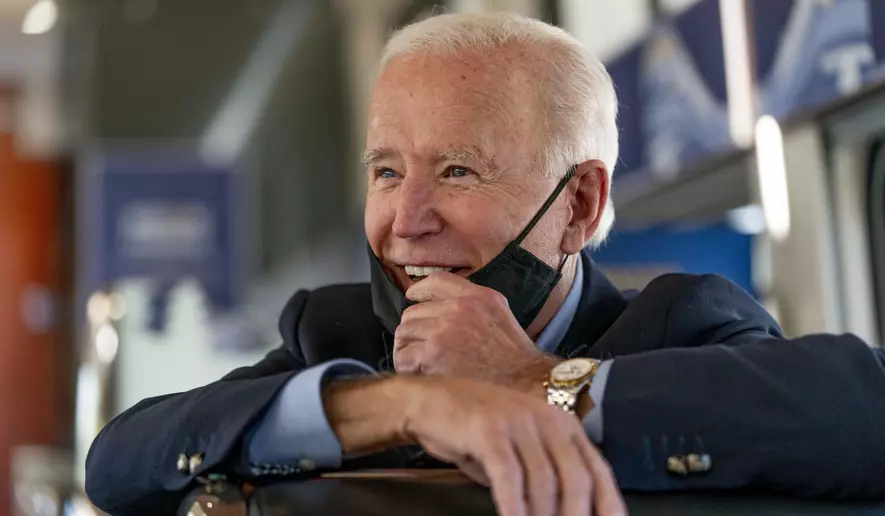
John F. Kennedy: Advocate for Healthcare Reform
mashupch
- 0
mashupch.com – John F. Kennedy, the 35th President of the United States, is widely remembered for his leadership during moments of national crisis and his vision for a better America. Among his many significant policy efforts, Kennedy also recognized the importance of healthcare reform as an essential part of ensuring the well-being of American citizens. Throughout his political career, Kennedy advocated for various reforms to improve healthcare access, affordability, and quality for all Americans. His ideas and proposals laid the groundwork for future advancements in the American healthcare system, influencing subsequent reforms and providing a blueprint for future leaders to follow.
Early Political Awareness of Healthcare Issues
John F. Kennedy’s commitment to healthcare reform began during his early years as a U.S. Senator from Massachusetts. Even as a freshman Senator in the 1950s, Kennedy was keenly aware of the disparities and challenges in healthcare faced by many Americans, particularly those living in rural areas or among the nation’s most vulnerable populations. He often highlighted the inadequacies in the healthcare system, especially when it came to the lack of adequate coverage for the elderly, the poor, and rural residents.
Kennedy’s concern for healthcare reform was grounded in his belief that a nation’s success could be measured by how well it cared for its most vulnerable citizens. He understood that a healthier population was more productive and that a strong, vibrant nation could not thrive if a significant portion of its citizens lacked access to quality medical care.
Championing Healthcare for the Elderly
One of Kennedy’s most significant healthcare reform efforts was his strong advocacy for healthcare coverage for the elderly. In the early 1960s, there was no federal program for providing health insurance to seniors, leaving many elderly Americans without the means to pay for necessary medical treatments. At the time, the burden of paying for healthcare fell largely on individuals, and seniors were particularly vulnerable due to fixed incomes, making it difficult for them to afford medical expenses.
Kennedy recognized the need for a comprehensive healthcare program for older Americans, and he pushed for a Medicare program that would provide federal health insurance to individuals aged 65 and older. He saw the issue not just as an economic one but as a moral imperative to ensure that seniors would have access to medical care without the risk of financial ruin.
Kennedy’s advocacy was instrumental in bringing attention to the issue of senior healthcare. He supported legislation to create Medicare, introduced by his predecessor, President Harry S. Truman, but it was during Kennedy’s presidency that momentum for this crucial program began to gather. Kennedy’s leadership in championing healthcare for seniors set the stage for the landmark passage of Medicare and Medicaid in 1965 under President Lyndon B. Johnson.
Pushing for Broader Healthcare Access
Beyond his advocacy for the elderly, Kennedy also recognized the broader need for healthcare access for all Americans, particularly for working-class families and those living in underserved communities. One of Kennedy’s central objectives during his presidency was to extend medical care to as many people as possible, regardless of their economic status or geographic location.
Kennedy frequently advocated for public health programs that would increase healthcare access for low-income individuals, particularly in rural areas. He sought to expand funding for community health centers, which could serve as a lifeline for those living in isolated parts of the country where healthcare resources were limited. These centers were designed to provide basic medical care and preventive services to communities that might not otherwise have access to doctors and hospitals.
In addition to expanding healthcare access, Kennedy was a strong proponent of increasing funding for medical research, believing that improving medical knowledge was key to advancing the overall quality of care. He made notable efforts to expand the National Institutes of Health (NIH) budget, understanding the value of scientific advancement in improving public health and combating diseases that plagued the nation.
The Fight for National Health Insurance
As President, Kennedy continued to push for a more comprehensive healthcare system in the United States. He strongly supported the concept of national health insurance, which would provide a universal form of healthcare coverage to all Americans, regardless of their income or social status. His vision for national health insurance was rooted in his belief that the United States should be a leader in addressing the needs of its citizens, particularly in areas such as healthcare.
Kennedy faced significant opposition to his proposals for national health insurance, particularly from conservative politicians who were wary of the cost and the potential for government overreach. Despite this opposition, Kennedy remained steadfast in his commitment to healthcare reform. He continued to work toward building support for national health insurance, advocating for the principle that healthcare should be treated as a basic human right.
Although Kennedy was not able to achieve full national health insurance during his presidency, his advocacy for healthcare reform helped set the stage for later efforts to provide broader coverage for Americans. His leadership on the issue demonstrated a commitment to improving the lives of ordinary people, and it established a precedent for future administrations to continue working toward a more equitable healthcare system.
Kennedy’s Legacy in Healthcare Reform
While Kennedy’s presidency was cut short by his tragic assassination in 1963, his advocacy for healthcare reform left a lasting impact on the nation. His efforts to expand healthcare access for the elderly, improve public health services, and support medical research helped to lay the foundation for the expansion of healthcare services in the decades that followed.
The passage of Medicare and Medicaid in 1965 was a direct result of Kennedy’s leadership on healthcare issues. These programs have since become pillars of the American healthcare system, providing health coverage for millions of seniors, low-income individuals, and families.
Moreover, Kennedy’s approach to healthcare reform emphasized the importance of a compassionate, people-centered system. His belief in government’s responsibility to care for the most vulnerable members of society resonated with later policymakers and advocates for universal healthcare, such as those who would later champion the Affordable Care Act under President Barack Obama.
Kennedy’s advocacy for healthcare reform also contributed to a broader conversation about the role of government in providing social services and supporting the well-being of citizens. He showed that government intervention could be a powerful tool for ensuring that basic needs, including healthcare, were met for all Americans.
Conclusion: A Vision for a Healthier America
John F. Kennedy’s commitment to healthcare reform was a defining aspect of his presidency and political philosophy. Although his efforts did not result in the full realization of a national health insurance program during his time in office, his advocacy for healthcare access, particularly for seniors and underserved populations, set in motion significant reforms that would reshape the American healthcare landscape.
Kennedy’s work laid the groundwork for future healthcare policies, and his vision of a society that prioritizes the health and well-being of all its citizens continues to inspire political leaders, policymakers, and advocates for healthcare reform. Today, John F. Kennedy remains an enduring symbol of the potential for government to effect meaningful change in the lives of ordinary Americans, particularly in the realm of healthcare.
In advocating for healthcare reform, Kennedy reminded us that a great nation is measured not only by its economic power or military strength but by how it cares for its citizens. His legacy in healthcare continues to be a touchstone for those seeking to create a more equitable, accessible, and compassionate healthcare system in the United States.

